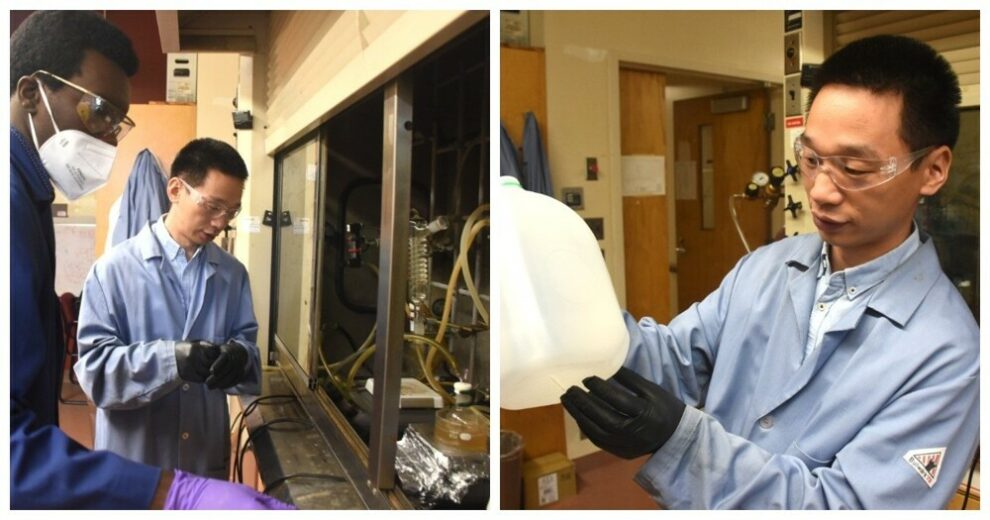Virginia Tech scientists have developed a groundbreaking process that converts plastic waste into useful household products like soap and detergents, potentially offering a revolutionary solution to the global plastic pollution crisis. The innovative research, led by Professor Greg Liu of Virginia Tech’s Department of Chemistry, represents a significant leap forward in sustainable waste management.
Liu’s journey toward this breakthrough began during his undergraduate years when a disturbing tour of a chemical plant sparked his determination to transform the industry. Witnessing widespread pollution and poor working conditions, he committed himself to developing cleaner, more sustainable chemical processes that could benefit future generations.
The team’s innovative approach centers on thermolysis, a process that uses controlled heat to break down plastic materials. Their specially designed reactor subjects plastics to temperatures between 650 and 750 degrees Fahrenheit, triggering chemical reactions that decompose the materials into valuable compounds. The process yields three primary outputs: capturable gas that can serve as fuel, minimal solid waste, and most importantly, oil that can be transformed into various consumer products.
Perhaps the most remarkable aspect of this breakthrough is the stability and practicality of the end products. Liu demonstrated this by displaying a vial of soap that had remained stable in his office for over a year. The soap has proven effective for various cleaning applications, from hand washing to laboratory glassware cleaning, demonstrating its practical viability.
This development comes at a crucial time, as traditional recycling methods have fallen short of addressing the global plastic crisis. According to United Nations data, a mere 9% of all plastics are successfully recycled, while a staggering 79% end up in landfills or natural environments. Liu’s process offers advantages over conventional recycling by minimizing harmful chemical releases that can endanger workers and damage ecosystems.
The potential impact of this technology extends beyond environmental benefits. If researchers can establish the process’s commercial viability, it could create a profitable pathway for businesses while simultaneously addressing plastic pollution. This dual benefit could accelerate the adoption of such technology across industries, potentially transforming how we handle plastic waste globally.
The significance of this research becomes even more apparent when considering the limitations of existing solutions. While alternatives like biodegradable plastics and plastic-free packaging offer partial solutions, they don’t address the massive volume of existing plastic waste. Liu’s process provides a promising approach to dealing with both current and future plastic pollution.
Looking ahead, Liu envisions a future where plastic waste no longer poses an environmental threat. His team’s work represents a crucial step toward closing the loop in plastic consumption and waste management. However, he acknowledges that achieving this goal requires sustained effort and collective will from society as a whole.
The implications of this breakthrough extend beyond immediate waste management solutions. By converting waste into valuable products, the process could create new economic opportunities while addressing environmental challenges. This alignment of economic and environmental interests could prove crucial in driving widespread adoption of such technologies.
As global plastic production continues to rise, innovations like Liu’s become increasingly vital. This research not only offers a practical solution to plastic waste but also demonstrates how scientific innovation can address complex environmental challenges while creating valuable products for everyday use.
The development represents a significant milestone in sustainable chemistry and waste management, offering hope for a future where plastic waste becomes a valuable resource rather than an environmental burden. As research continues and the process is refined, it could fundamentally change how we think about and handle plastic waste, moving us closer to a truly circular economy.
















Add Comment